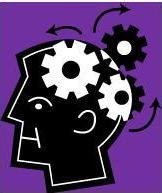In a study of 500 managers on 3 continents, Egon Zehnder International found that unsuccessful managers, each with exceptional IQ's and experience, lacked emotional intelligence. (Sometimes referred to as emotional strength.)
Psychologist and researcher Daniel Goleman, discovered that emotional intelligence skills account for an astounding 90 percent of the success of senior leaders. A growing consensus on professional leadership shows that people who rise to the top of their field from finance to law, to medicine or other aren’t just good at their jobs. They’re affable, resilient and optimistic.
In other words, traditional cognitive intelligence, or IQ, may not be enough. It also takes 'emotional intelligence' or EQ: the ability to restrain negative feelings such as anger and self-doubt, and instead focus on positive ones such as confidence and congeniality.
Psychologist and researcher Daniel Goleman, discovered that emotional intelligence skills account for an astounding 90 percent of the success of senior leaders. A growing consensus on professional leadership shows that people who rise to the top of their field from finance to law, to medicine or other aren’t just good at their jobs. They’re affable, resilient and optimistic.
In other words, traditional cognitive intelligence, or IQ, may not be enough. It also takes 'emotional intelligence' or EQ: the ability to restrain negative feelings such as anger and self-doubt, and instead focus on positive ones such as confidence and congeniality.
In his 1995 book, Goleman organizes emotional intelligence into four Domains: Self-Awareness, Self-Management, Social Awareness, and Relationship Management. Debate remains on the definition of EQ but such studies add new metrics to the old mantra of executive recruiters: "Hired on experience, and fired on personality."
Whereas IQ is relatively fixed, emotional intelligence (or strength) can be learned. So how do you increase workplace EQ? The best way is to work with a professional qualified to teach EQ skills.
But what’s the payoff?
Not only is job performance enhanced but higher EQ can improve relationships in every area of life. With the costs of turnover ( 150% of payroll) and workplace conflicts, that's a terrific ROI.
Sources: ASTD, APA, and
Pierce Management Development



